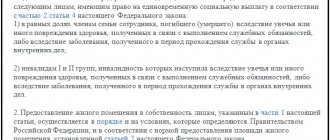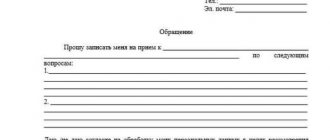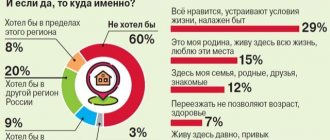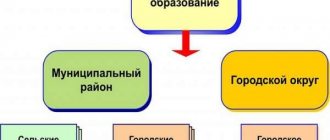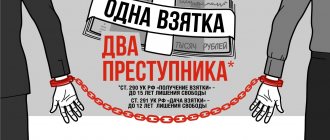general information
All acts of legislation that regulate admission to kindergartens are prescribed in the relevant law. Let's consider the most important concepts, definitions and nuances that need to be known and taken into account when a child enrolls in these organizations. We will also consider an action plan for citizens whose children do not have a place on the list of groups due to the lack of vacant places, when they are required to give a place in kindergarten, and at what age they are admitted to kindergarten.
Who, according to the latest changes in legislation, will get a place in the kindergarten? — The Constitution in force in Russia and the law on admitting a child to kindergarten have established the following: at any place of residence, every child who is a citizen of Russia is required to be given the right to attend educational institutions free of charge. There can be no legal circumstances that could prevent this.
However, it happens that having received a refusal, the child’s parents simply do not know how to proceed. In addition, many of them do not even know at what age they should send their “child” there.
Features of organizing video surveillance in kindergartens
In addition to compensation for expenses or non-provision of a place in preschool institutions, the organization of video surveillance . The Family Code establishes that while children are in kindergartens, persons acting as substitute parents, that is, teachers, are responsible for them. But, if parents do not agree with video recording, then they have the right to refuse to keep the child in this institution or contact its management with a request to stop video surveillance.
Is video surveillance legal in kindergartens? The operator is obliged to inform parents about the collection of such personal data, obtain their written consent and, if necessary, provide the collected information. The operator must provide the data within 30 days from the date of receipt of the request, and access will be free of charge or in the form of the opportunity to freely review the information.
Principles of seat allocation and required age
According to the latest research indicators in this area, the state can complete preschool education for only half of children aged 3 years.
The recent reforms not only did not improve the situation, but may even have taken additional steps towards making the situation critical. Now legislative acts control and determine the direction of action for non-state kindergartens, where they have to shell out additional money every month for food and repairs. The concept of financial support and sponsorship of these institutions was also formulated and adopted.
For the past 5 years, ministers have had laws on preschool education on their desks, which are introduced from time to time. Top officials of the Russian Federation gave interviews in which they reported on upcoming work on a new law that will change how the provision of places in kindergarten proceeds. As a result, due to legal uncertainties, parents who have received a refusal from a kindergarten do not know where to find a free place for their child.
At the moment, the Ministry of Education has made a number of adjustments. They approved the age limits for applicants to parole. According to them, a 1.5 year old child has the right to get a place in a nursery. He must be allocated a seat, if there is free space. Children from 3 to 7 years old are also protected by law, and they are provided with a place in a preschool institution.
In general, trends in recent years show that nurseries will be disbanded over time, and commercial establishments will become an alternative.
Legislation of the Russian Federation on preschool education of children
The formation of personality and future success in society of any person is predetermined by many factors:
- but those attitudes that were laid in early childhood are of particular importance.
Therefore, early learning and development of children in the preschool education system is rightly considered among the most important stages of human development.
Today, in most developed countries of the world and in almost all European countries, state-supported early childhood development programs are being implemented.
In the Russian Federation, significant attention has also recently been paid to preschool education of children.
The strategic aspects of the development of the preschool education system for children are laid down in the Concept of long-term socio-economic development of the Russian Federation for the period until 2021, approved by Decree of the Government of the Russian Federation of November 17, 2008 No. 1662-r.
Among the tasks the Concept outlines:
- increasing the flexibility and diversity of forms of provision of services in the preschool education system,
- which is designed to provide support and fuller use of the educational potential of families.
Legal regulation of preschool education of children in the Russian Federation is based on Art. 43 of the Constitution of the Russian Federation, which:
- guarantees free and accessible preschool education in state and municipal institutions,
- thereby imposing on the state the obligation to ensure the implementation of this right.
However, this constitutional norm does not specify the content of the right of families with children to preschool education and does not determine the details of the legal regulation of this area of educational relations.
More detailed regulation of the right of families with children to preschool education is carried out:
- at the level of the Federal Law of December 29, 2012 No. 273-FZ (as amended on July 29, 2017) “On Education in the Russian Federation.”
In the constituent entities of the Russian Federation, certain steps are being taken to solve the problems of providing families with children with accessible preschool education:
- One of the characteristic features of the legislation of the constituent entities of the Russian Federation is the presence of a variety of regional and municipal short-term and long-term targeted programs aimed at developing a network of preschool educational institutions.
Since 2013, by the Law on Education in the Russian Federation No. 273-FZ, preschool education has been classified as part of the general education system.
In accordance with the Education Law, preschool education:
- this is the first level of general education in a row with primary general education, basic general education and secondary general education;
- this means that all the requirements established for general education also apply to preschool education.
Part 4 of Article 10 “Structure of the education system” of the Federal Law of December 29, 2012 No. 273-FZ (as amended on July 29, 2017) “On Education in the Russian Federation”
However, the Education Law does not clearly establish the compulsory nature of preschool education:
- the law determines that only primary general, basic general and secondary general education are compulsory levels of education,
- thereby implying that preschool education is not compulsory education.
Part 5 of Article 66 “Primary general, basic general and secondary general education” of the Federal Law of December 29, 2012 No. 273-FZ (as amended on July 29, 2017) “On Education in the Russian Federation”
The concepts of “preschool education” of children and “supervision and care” of children
For the first time, the concept of “ preschool education ” of children was introduced by the Federal Law on Education No. 273-FZ.
Federal Law on Education No. 273-FZ specifies the goals of preschool education for children, naming among them:
- formation of a common culture for children;
- development of physical, intellectual, moral, aesthetic and personal qualities in children;
- formation of prerequisites for educational activities in children;
- maintaining and strengthening the health of preschool children.
Along with the introduction of the concept of “preschool education” of children, Federal Law No. 273-FZ introduced a definition of the concept of “ supervision and care ” for children.
The Law defines supervision and care of children as:
- a set of measures to organize nutrition and household services for children,
- to ensure their compliance with personal hygiene and daily routine.
Thus, supervision and care as a special type of services of a preschool educational organization is distinguished from educational services.
Payment for supervision and care in preschool educational organizations
According to Part 2 of Art. 65 of Federal Law No. 273-FZ for supervision and care, the founder of an educational organization has the right to set a fee and its amount.
Part 2 of Article 65 “Fees collected from parents (legal representatives) for the supervision and care of children mastering educational programs of preschool education in organizations engaged in educational activities” of the Federal Law of December 29, 2012 No. 273-FZ (as amended from 07/29/2017) “On education in the Russian Federation”
Federal Law No. 273-FZ regarding fees for supervision and care in preschool educational organizations:
- does not contain any parameters for determining the amount of parental fees for the supervision and care of children in preschool educational organizations,
- leaving this at the discretion of the state authorities of the constituent entities of the Russian Federation in terms of the authority to establish the average amount of parental payment for the supervision and care of children;
- gives the founders the right to reduce the amount of parental fees or not collect them from certain categories of parents (legal representatives). At the same time, the founder is independent in determining the cases and procedure for applying such preferences.
Thus, the practice that has developed in many constituent entities of the Russian Federation of establishing additional categories of persons for whom benefits for paying parental fees are applied is legislatively enshrined.
Also, Part 4 of Article 65 of Federal Law No. 273-FZ provides:
- the inadmissibility of including in parental fees for child supervision and care in preschool educational organizations expenses for the implementation of the educational program of preschool education, as well as
- expenses for the maintenance of real estate of these educational organizations.
Categories of children for whom supervision and care in preschool educational organizations is provided free of charge
Federal Law No. 273-FZ established a specific list of categories of children whose supervision and care in preschool educational organizations is provided free of charge:
- disabled children,
- orphans,
- children left without parental care, as well as
- children with tuberculosis intoxication,
- students in state and municipal educational organizations implementing the educational program of preschool education
Rights of families with preschool children studying in the form of family education
Federal Law No. 273-FZ also secured the right for parents of minor children receiving preschool education in the form of family education:
- to receive methodological, psychological, pedagogical, diagnostic and advisory assistance without charging a fee;
- such assistance can be provided, including in consultation centers operating at preschool and general education organizations,
- however, the creation of special consultation centers cannot be ruled out;
- At the same time, the Law provided for the obligation of parents to inform the local government body if they chose the form of family education.
Federal law entrusts the provision of these types of assistance to the state authorities of the constituent entities of the Russian Federation.
In order to ensure accessibility for students to realize the right to education guaranteed by the Constitution of the Russian Federation, Federal Law No. 273-FZ introduced a provision on transport provision:
- this norm is formulated in general in relation to students in state and municipal educational organizations,
- which means it also applies to preschool educational organizations that meet the requirements established by the Law;
- at the same time, transport provision is considered by Federal Law No. 273-FZ as an obligation of the founder of the organization.
Article 40 “Transport provision” of the Federal Law of December 29, 2012 No. 273-FZ (as amended on July 29, 2017) “On Education in the Russian Federation”
The following material will discuss the legal status and types of preschool education organizations.
If you have any questions about the violation of your rights, or you find yourself in a difficult life situation, then an online duty lawyer is ready to advise you on this issue for free.
RIGHT TO PRE-SCHOOL EDUCATION
Changes brought about by the education reform
The law on providing a place in kindergarten made the following adjustments:
- Changes in the content of Article 65.
- development and organization of the activities of centers that will be designed to provide consultation on priority issues for needy young families;
- reducing the number of groups by 1.5 times;
- provision of free services in educational groups, the foundation of the work process of which is the field of children's education.
- Changes in the content of Article 66.
- preschool organizations are given rights that allow them to expand the range of their services. However, the state does not oblige you to use this act, but only recommends it;
- increasing the level of mandatory compensation for services assigned in accordance with market prices in 100% of the volume;
- The state reimburses this payment depending on the situation. Its dimensions are as follows: for the first-born - 20%, for the 2nd - 50%, for the 3rd and subsequent new citizens, compensation is provided in the amount of 70% of the payment amount.
- Changes in the content of Article 86.
- According to the law, the age of a child for kindergarten will remain the same, but a nuance will appear. Kindergartens will have the opportunity to refuse if, in fact, there are no vacancies.
- as in compensating for the inconvenience to citizens, in the above paragraph, they will have the right to get a place in another district institution.
It is expected that the President, based on the adoption of a number of resolutions, will sign a decree on the allocation of additional funds. It is expected that these resources will be used to build new kindergartens.
The new law on kindergartens will expand opportunities for cooperation between educators and parents. Parents who want to educate their child not in a stationary institution, but at home, will be able to invite a professional educator for this.
If not taken due to health reasons
The most common reason for refusal to enroll a child in a preschool educational organization is the lack of vaccinations and, accordingly, a medical card, which doctors do not issue in the absence of them. In such a situation, we should not forget that parents are not legally required to vaccinate their children; this is their independent choice.
It is necessary to request from the doctor a written justification for the non-issuance of a medical card related to the lack of vaccinations. This will help encourage doctors to issue a child’s medical card, since otherwise they will be committing a violation of the law.
If in this case the kindergarten employees claim that the presence of a child without vaccinations together with vaccinated children violates sanitary standards, it should be pointed out that these standards are not law, they are by-laws. Accordingly, it has less legal force than the Federal Law “On Education”, the Family Code and the Constitution of the Russian Federation.
If the kindergarten staff sends the child to be examined by a doctor, ask for a written referral indicating the reasons.
However, such actions may not bring positive results. For example, if the doctor issues a medical card, but indicates that the child is not recommended to attend kindergarten. In this case, the kindergarten employees will refer to the provisions of the contract, according to which children cannot be accepted into this organization if they are not vaccinated.
They may also refuse to provide premises because planned preventive vaccination is being carried out. In such a situation, you should file a complaint by addressing it to the head of the medical organization. It is necessary to describe the violations committed by the kindergarten doctor.
Preschool educational institution and benefits
Authorities must give space to the following categories of citizens, regardless of whether there is a queue or not:
- Orphans, adopted children, who have lost parental support.
- Children whose parents have the civil status of “orphan”, provided that he is not older than 23 years.
- Children whose parents suffered from the tragedy at the Chernobyl nuclear power plant.
- Citizens under 7 years of age whose parents work in law enforcement agencies.
In addition to the above categories of citizens, the act of allocating a place in a preschool organization attaches to them in a separate order: members of large families, children of military personnel and single mothers, as well as if a brother or sister is already a pupil of a certain institution.
If you find an error, please select a piece of text and press Ctrl+Enter.
Didn't find the answer to your question? Find out how to solve exactly your problem - fill out the form below or call right now: +7 (ext. 697) (Moscow) +7 (ext. 281) (St. Petersburg) +8 (ext. 198) (Russia) It's fast and free!
When will a place in kindergarten be provided, and what is the procedure according to the legislation of 2021?
Based on Law 273-FZ “On Education in the Russian Federation” as amended, minors are required to be given the right to free education in preschool institutions when they are 3 years old and up to 7 years old.
Obtaining a place in kindergarten depends on the availability of free space in a particular institution, the formation of which is carried out depending on the charter of the organization and workload. Enrollment in nurseries and senior groups is also carried out in accordance with the charter of the institution.


